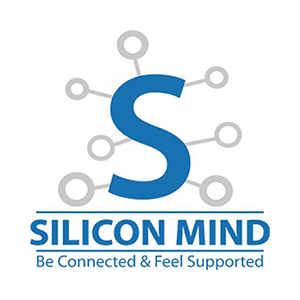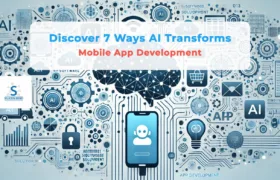Introduction to IoT Vending Machines
Vending machines have long been a staple in various public spaces, providing convenient access to snacks, beverages, and other goods. However, with the rise of the Internet of Things (IoT), these machines are undergoing a transformation into smart and connected devices. IoT vending machines are equipped with sensors and internet connectivity that enable real-time monitoring of inventory levels, sales data, and consumer behavior.
By leveraging IoT technology, vending machine operators can optimize their supply chain management by tracking product popularity and adjusting stock levels accordingly. Additionally, these smart machines can offer personalized promotions or discounts based on consumer preferences gathered through data analytics. With the ability to accept mobile payments and provide interactive touchscreen displays, IoT vending machines are revolutionizing the retail experience by offering convenience and efficiency while also creating new opportunities for marketing and customer engagement. The future of retail is indeed looking brighter with the integration of IoT technology into traditional vending machines.
1- The Role of IoT in Retail Transformation
The integration of IoT in the retail sector has led to a remarkable transformation, notably through smart vending machines. These innovative devices are not just about providing convenient access to products; they have become powerful tools for retailers to understand consumer behavior and preferences. By analyzing data collected from IoT-enabled vending machines, retailers can gain valuable insights into customer purchasing patterns, popular products, and even optimize restocking schedules.
Moreover, the use of IoT in vending machines allows for personalized marketing strategies. With the ability to track individual purchasing histories and tailor promotions accordingly, retailers can create targeted advertising campaigns that resonate with each customer uniquely. This personalized approach enhances the overall shopping experience and increases customer satisfaction levels significantly. Ultimately, by leveraging IoT technology in vending machines, retailers can stay ahead of the curve in an increasingly competitive market landscape.
2- Overview of Smart VendTech Advancements
In the world of retail, the landscape is continuously evolving with technological innovations leading the charge. Smart VendTech advancements are at the forefront of this transformation, integrating IoT-enabled vending machines that go beyond traditional vending capabilities. These next-generation machines are equipped with sensors and connectivity features that enable real-time data collection and analysis, facilitating better inventory management and customer engagement. By harnessing the power of AI and machine learning algorithms, Smart VendTech can personalize product recommendations based on consumer preferences and purchasing patterns.
Furthermore, the integration of biometric authentication in smart vending machines enhances security measures while also providing a seamless and convenient shopping experience for customers. This innovative technology allows for contactless transactions through facial recognition or fingerprint scanning, eliminating the need for cash or physical cards. As we delve deeper into these advancements in VendTech, it becomes evident that the fusion of IoT devices and vending machines is reshaping retail dynamics by offering unparalleled convenience, efficiency, and customization to consumers worldwide.
The Anatomy of an IoT Vending Machine
Imagine a vending machine that not only dispenses your favorite snacks but also collects data on consumer behavior, monitors inventory levels in real-time, and automatically reorders products when stocks run low. Welcome to the world of IoT-enabled vending machines where advanced technology is seamlessly integrated with everyday convenience. At the heart of this innovative concept lies the intricate anatomy of these smart devices, featuring an array of sensors, connectivity modules, and cloud-based analytics systems.
The brain of an IoT vending machine is its central processing unit (CPU), which coordinates all operations and interfaces with various components to ensure smooth functionality. Sensors strategically placed within the machine detect motion, temperature, inventory levels, and even customer interactions to provide valuable insights for optimization. Connectivity modules such as Wi-Fi or cellular data enable seamless communication between the vending machine and central servers or mobile applications for remote monitoring and management. This transformative technology not only enhances operational efficiency but also opens up new possibilities for personalized marketing strategies and unique user experiences in retail environments.

1- Core Components and Technologies
In the realm of Smart VendTech, core components and technologies form the backbone of IoT-enabled vending machines, driving the retail revolution forward. These machines are equipped with state-of-the-art sensors that collect real-time data on inventory levels, customer preferences, and machine performance. Leveraging cloud computing, this data is processed instantly to optimize supply chain management and provide a seamless user experience.
Furthermore, advanced machine learning algorithms help predict consumer behavior patterns and customize product offerings based on individual preferences. Through RFID technology and integrated payment systems, transactions become swift and secure, enhancing both efficiency and convenience for consumers. In essence, these core components work cohesively to enable vending machines to adapt to evolving market trends while offering personalized experiences that redefine traditional retail interactions.
2- Connectivity Options for Real-Time Data Exchange
When it comes to real-time data exchange in the realm of IoT-enabled vending machines, connectivity is key. Two crucial options for facilitating this seamless exchange of information are Wi-Fi and cellular connectivity. Wi-Fi offers the advantage of high-speed internet access, making it ideal for locations with stable network infrastructure like malls or offices. On the other hand, cellular connectivity provides a more flexible solution by enabling vending machines to operate in remote areas where Wi-Fi coverage may be limited.
Additionally, emerging technologies such as LPWAN (Low Power Wide Area Network) are gaining traction in the IoT space by offering cost-effective and energy-efficient connectivity solutions for vending machines. This allows for continuous data transfer without draining excessive power resources, ensuring reliable communication between vending machines and centralized monitoring systems. By leveraging these advanced connectivity options, vending machine operators can optimize inventory management, enhance customer experiences, and drive revenue growth through real-time data insights.
3- Integrating Payment Systems: From Cash to Cashless
As technology continues to revolutionize the retail landscape, one area primed for transformation is payment systems within vending machines. Transitioning from traditional cash payments to cashless transactions opens up a world of convenience and efficiency for both consumers and vendors alike. Integrating secure digital payment options like mobile wallets and contactless cards not only enhances the customer experience but also streamlines operations by reducing the need for manual cash handling.
Moreover, embracing a cashless approach allows vending machine operators to gather valuable data on consumer purchasing behavior. By analyzing transaction trends and preferences, vendors can tailor their product offerings to better meet customer demands, ultimately leading to increased sales and improved profitability. This shift towards digital payment systems not only modernizes vending experiences but also sets the stage for future innovations in smart retail solutions powered by IoT technology.
Benefits of IoT-Enabled Vending Machines
IoT-enabled vending machines are transforming the retail landscape by offering a myriad of benefits to both consumers and operators. These smart machines are capable of real-time inventory tracking, ensuring that popular items are always stocked, while also helping operators optimize their restocking schedules. From a consumer standpoint, these vending machines provide unparalleled convenience by allowing for cashless transactions and personalized product recommendations based on past purchases or preferences.
Moreover, IoT-enabled vending machines enhance the overall customer experience through interactive touchscreens that can display nutritional information, ingredient lists, and even offer promotions or discounts in real-time. This level of interactivity not only increases engagement but also enables operators to gather valuable data on consumer behavior and preferences in order to continuously improve their offerings. With improved efficiency, personalization, and data-driven insights, it’s clear that IoT-enabled vending machines are reshaping the future of retail one smart vend at a time.
1- Enhanced Consumer Experience
Enhanced consumer experiences are at the forefront of retail innovations, and Smart VendTech is transforming this landscape with IoT-enabled vending machines. Imagine a future where these machines offer personalized recommendations based on past purchases, dietary preferences, and real-time trends. Customers will no longer be faced with overwhelming choices but instead greeted by tailored options that cater to their unique needs and desires.
With advanced data analytics, vending machines can also predict consumer behavior and adjust their offerings accordingly. This predictive capability allows for seamless inventory management, ensuring popular items are always in stock while minimizing waste. In addition, integrating mobile payment options and loyalty programs into VendTech enhances convenience and fosters customer loyalty. By harnessing the power of IoT technology, vending machines have evolved from simple dispensers to sophisticated retailers that elevate the overall shopping experience for consumers across various industries.
2- Operational Efficiency
Operational efficiency is at the heart of successful vending machine management. With the integration of IoT technology, vending machines can now be monitored remotely, allowing for real-time inventory tracking and predictive maintenance. This level of connectivity not only reduces downtime but also streamlines restocking processes, ensuring that machines are always adequately stocked with high-demand items.
By harnessing data analytics provided by IoT-enabled vending machines, retail operators can gain valuable insights into consumer behavior and preferences. This data-driven approach allows for targeted marketing strategies and product placement optimization to maximize sales potential. Additionally, the automation of routine tasks through IoT technology frees up valuable time for staff to focus on customer engagement and service enhancement initiatives. In essence, operational efficiency through IoT-enabled VendTech not only revolutionizes retail but also creates a more seamless and responsive customer experience in today’s fast-paced market landscape.
3- Data-Driven Business Decisions
In the realm of retail, making data-driven business decisions has never been more crucial than in today’s competitive landscape. With the advent of IoT-enabled vending machines, retailers now have access to a goldmine of real-time consumer behavior data that can be used to drive strategic decision-making. By analyzing trends such as peak shopping times, popular products, and customer preferences, retailers can optimize inventory management, pricing strategies, and marketing efforts.
Moreover, data-driven insights empower retailers to personalize the shopping experience for customers by offering targeted promotions and tailored recommendations based on individual purchasing patterns. This level of customization not only enhances customer satisfaction but also fosters brand loyalty in an increasingly discerning market. By harnessing the power of data analytics, businesses can stay ahead of evolving consumer trends and gain a competitive edge in the fast-paced retail landscape.
Challenges and Considerations
The integration of IoT technology in vending machines undoubtedly enhances the retail experience, but it also brings along a myriad of challenges and considerations. One significant challenge is ensuring robust cybersecurity measures to protect sensitive consumer data and prevent hacking incidents. With the vast amount of personal information collected through IoT-enabled vending machines, companies must invest in advanced security protocols to safeguard customer privacy.
Another crucial consideration lies in the maintenance and upkeep of these sophisticated systems. Regular software updates, hardware inspections, and troubleshooting tasks become imperative to ensure seamless functionality and prevent downtime. Moreover, navigating the regulatory landscape surrounding data collection and storage poses a constant challenge for retailers operating IoT-powered vending machines. Compliance with various laws and regulations requires a deep understanding of data protection policies and an ongoing commitment to staying abreast of changes in legislation.
1- Securing IoT Vending Machines against Cyber Threats
As vending machines continue to evolve with IoT technologies, ensuring their security against cyber threats has become paramount. These smart Vendtech devices are now vulnerable to various types of attacks that can compromise not only the machine’s operations but also put user data at risk. From ransomware attacks targeting payment systems to unauthorized access to sensitive information, the implications of a breach in an IoT vending machine are significant.
To secure these machines effectively, a multi-layered approach is crucial. This includes implementing robust authentication mechanisms for accessing the machine’s interface, encrypting communication between components, and frequently updating software to patch vulnerabilities. Additionally, regular security audits and monitoring for unusual activity can help detect and mitigate potential threats before they escalate. By taking proactive measures and staying informed about emerging threats in IoT security, vending machine operators can protect both their business and their customers from cyber risks.
2- Overcoming Technical and Connectivity Hurdles
Overcoming technical and connectivity hurdles in the realm of IoT-enabled vending machines is a critical aspect of ensuring smooth operations and customer satisfaction. One key challenge lies in managing the complex network of devices, sensors, and data streams that power these machines. Issues such as software bugs, compatibility conflicts, and data security vulnerabilities can hinder the seamless functioning of these smart systems. To address this, vendors must invest in robust monitoring tools and expert IT support to proactively detect and resolve any technical glitches.
Moreover, ensuring reliable connectivity is essential for IoT-enabled vending machines to deliver real-time data insights and respond promptly to consumer demands. Poor signal strength or network outages can result in operational disruptions and lost revenue opportunities. By leveraging advanced networking technologies like 5G or edge computing solutions, operators can overcome connectivity challenges and enhance the overall performance of their smart vending setups. Embracing a proactive approach towards network optimization and contingency planning is crucial for businesses looking to leverage VendTech to its full potential in today’s hyper-connected market landscape.
3- Navigating Regulatory and Compliance Issues
Navigating regulatory and compliance issues is a key consideration for the successful integration of IoT-enabled vending machines in retail environments. As these smart VendTech solutions collect and process sensitive consumer data, businesses must adhere to data protection laws like GDPR to ensure customer privacy is safeguarded. Moreover, compliance with industry-specific regulations such as those related to food safety or product labeling becomes essential to prevent legal complications.
One innovative approach to managing regulatory challenges in VendTech involves leveraging blockchain technology. By utilizing decentralized ledgers, vending machine operators can ensure secure and transparent transactions while maintaining an immutable record of compliance efforts. This blockchain-based solution not only streamlines audits but also enhances trust between stakeholders by providing real-time visibility into regulatory adherence across the supply chain.
Furthermore, proactive engagement with relevant regulatory bodies allows businesses deploying IoT-enabled vending machines to stay ahead of evolving compliance requirements. Establishing partnerships with legal experts specializing in technology law can provide invaluable guidance on navigating changing regulations and tailoring strategies that align with industry best practices. By prioritizing a proactive approach towards regulatory compliance, retail businesses can mitigate risks, build trust with consumers, and drive sustainable growth in the dynamic landscape of smart VendTech innovation.

Silicon Mind is at the forefront of the VendTech revolution, offering cutting-edge IoT solutions tailored to meet the dynamic demands of the retail vending industry. With a strong emphasis on enhancing user experience and streamlining operations, our customized IoT services enable vending machine operators to harness real-time data, improve inventory efficiency, and offer secure cashless transactions.
Silicon Mind’s expertise in IoT integration not only offers a glimpse into the future of automated retail but also positions vending services at the edge of technological advancement. Contact us today for a free consultation.
Future Trends in IoT Vending Technology
As we look towards the future of vending technology in the realm of IoT, there are several exciting trends emerging that promise to revolutionize the retail industry. One key trend is the integration of AI algorithms into vending machines, which enables personalized recommendations based on consumer preferences and buying behavior. This level of customization can enhance user experience and increase customer satisfaction, ultimately driving sales for businesses.
Another significant trend on the horizon is the utilization of blockchain technology in IoT vending machines to ensure secure transactions and transparent supply chains. By leveraging blockchain, vending operators can track product origins, monitor inventory levels in real-time, and streamline payments securely. This enhanced level of transparency not only builds trust with consumers but also opens up new possibilities for efficiency and accountability within the vending industry. In essence, these advancements in IoT vending technology are set to redefine how consumers interact with automated retail systems, paving the way for a smarter and more connected shopping experience.
1- The Rise of AI and Machine Learning
AI and machine learning have emerged as game-changers in the realm of retail, particularly through the innovative applications witnessed in IoT-enabled vending machines. The integration of these advanced technologies allows vending machines to gather real-time data on consumer preferences, analyze purchasing patterns, and even predict future trends. By harnessing the power of AI algorithms, these machines can offer personalized product recommendations tailored to individual shoppers’ preferences.
Furthermore, AI-driven analytics enhance operational efficiency by optimizing inventory management and supply chain logistics. The ability of machine learning models to detect anomalies or forecast demand fluctuations enables vending operators to streamline their operations, reduce costs, and minimize waste. As a result, this technology not only benefits businesses but also enhances customer satisfaction by ensuring that popular items are always stocked and readily available. The rise of AI and machine learning in VendTech is indeed transforming the retail landscape into a dynamic ecosystem driven by data-driven decisions and personalized experiences for consumers.
2- The Integration with Smart Cities and Public Spaces
The integration of IoT-enabled vending machines with smart cities and public spaces marks a significant step towards enhancing the overall shopping experience for consumers. By strategically placing these innovative vending machines in high-traffic areas within urban environments, retailers can tap into new markets and increase convenience for customers. Imagine walking through a bustling city square and being able to purchase your favorite snack or beverage with just a few taps on your phone – that’s the future that smart VendTech is bringing to life.
Moreover, the integration of vending machines with smart cities allows retailers to gather valuable data about consumer preferences and behaviors in real-time. This data can be leveraged to personalize marketing efforts, optimize product offerings, and improve overall customer satisfaction. Additionally, by being connected to the IoT network in a city infrastructure, these vending machines can also contribute to reducing waste and environmental impact by optimizing stock levels based on demand patterns throughout the day. In essence, smart VendTech not only revolutionizes the retail industry but also plays a crucial role in shaping sustainable urban environments for future generations.
3- Sustainability and Eco-Friendly Initiatives
Sustainability and eco-friendly initiatives are becoming increasingly important in today’s retail landscape. Smart VendTech, powered by IoT-enabled vending machines, presents a unique opportunity to integrate green practices into everyday consumer experiences. By leveraging sensor technology and data analytics, these vending machines can reduce energy consumption, minimize waste, and promote recycling efforts within retail spaces.
One innovative sustainability feature of IoT-enabled vending machines is the ability to track product inventory in real-time. This not only optimizes restocking schedules but also helps prevent food spoilage and unnecessary waste. Additionally, the use of biodegradable or recyclable materials in machine construction further enhances the environmental impact of these smart vending solutions.
Furthermore, by providing consumers with transparent information about product sourcing, manufacturing processes, and carbon footprints through digital displays on vending machines, retailers can empower individuals to make more informed and environmentally conscious purchasing decisions. This level of transparency fosters trust between brands and customers while encouraging sustainable practices at every touchpoint of the retail experience.

How to Implement IoT in Your Vending Business
Implementing IoT in your vending business can revolutionize the way you operate, offering incredible benefits and opportunities for growth. By integrating smart sensors and devices into your vending machines, you can remotely monitor inventory levels, track sales data in real-time, and even adjust pricing based on demand. This level of automation not only streamlines operations but also enhances customer experience by ensuring product availability.
Furthermore, IoT technology allows for personalized marketing strategies through targeted advertisements displayed on digital screens integrated into the vending machines. Utilizing data analytics from customer interactions with the machines enables you to tailor promotions based on individual preferences and behaviors. With IoT-enabled vending machines, you have the power to optimize stock replenishments, minimize machine downtime through predictive maintenance, and ultimately increase revenue by providing customers with a seamless and interactive retail experience.
1- Identifying the Right IoT Platform
When it comes to revolutionizing retail with IoT-enabled vending machines, choosing the right IoT platform is crucial. An ideal platform should offer seamless integration with various sensors and devices, robust security features to protect customer data, and scalability to accommodate future growth. Additionally, it should provide real-time data analytics capabilities for monitoring machine performance and optimizing product offerings.
One key factor in identifying the right IoT platform for Smart VendTech is compatibility with existing systems and technologies. By selecting a platform that can easily integrate with current vending machine operations and backend systems, retailers can streamline implementation processes and ensure a smooth transition to IoT-enabled solutions. Furthermore, considering the vendor’s reputation for reliability, ongoing support services, and industry partnerships can also help in making an informed decision towards selecting the best IoT platform for Smart VendTech deployment.
2- Partnering with Technology Providers
Partnering with technology providers is crucial for businesses looking to revolutionize the retail space with IoT-enabled vending machines. These partnerships can bring in expertise, resources, and cutting-edge technology solutions that may be otherwise challenging to develop in-house. By collaborating with technology providers, retailers can leverage their knowledge of IoT systems, data analytics, and machine learning to create innovative vending experiences that cater to modern consumer preferences.
Technology providers offer a wealth of industry-specific insights that can help retailers navigate the complexities of integrating IoT into vending machines successfully. This includes understanding the latest trends in retail tech, streamlining operational processes with automation, and enhancing customer interactions through personalized experiences. Partnering with these experts also allows retailers to stay abreast of advancements in AI-powered inventory management, remote monitoring capabilities, and real-time data analytics – all of which are essential for optimizing vending machine performance and driving business growth.
3- Assessing Cost and ROI
When assessing the costs and ROI of implementing IoT-enabled vending machines, retailers need to consider both immediate expenses and long-term benefits. While upfront costs may seem significant, the potential return on investment lies in increased efficiency, data-driven insights, and enhanced customer experiences. By analyzing the overall cost savings from streamlined operations, predictive maintenance capabilities, and personalized product recommendations, retailers can better understand the tangible value these smart VendTech solutions bring to their business.
Moreover, tracking metrics such as sales performance, inventory management efficiencies, and consumer behavior patterns can provide valuable insights into the true impact of IoT-enabled vending machines on a company’s bottom line. This data-driven approach not only helps in optimizing inventory levels and pricing strategies but also enables businesses to make informed decisions that drive profitability. Ultimately, by carefully evaluating both the costs involved and the potential returns generated by these innovative technologies, retailers can unlock a new level of competitiveness in today’s dynamic market landscape.
Conclusion
The Potential of IoT Vending Machines in Modern Retail
IoT vending machines have become a game-changer in modern retail, offering a seamless shopping experience for consumers and enhanced operational efficiency for businesses. Through real-time data collection and analysis, these smart vending machines can optimize inventory management, track consumer preferences, and even offer personalized recommendations. What sets them apart is their ability to adapt and evolve with the changing market trends, ensuring that customers always have access to the products they desire.
Moreover, IoT-enabled vending machines present a unique opportunity for retailers to gather valuable insights into consumer behavior. By analyzing data on purchasing patterns, foot traffic, and popular products in real-time, businesses can make informed decisions to improve their product offerings and enhance the overall customer experience. This level of connectivity not only benefits individual retailers but also contributes to the larger ecosystem of retail by fostering innovation and driving competition in the industry.
Charting the Path Forward for Intelligent Vending Solutions
Imagine a future where vending machines don’t just dispense snacks and drinks, but also offer personalized recommendations based on your preferences and past purchases. This is the potential of intelligent vending solutions powered by IoT technology. By collecting and analyzing data in real-time, these smart vending machines can optimize their product offerings, pricing strategies, and even locations for maximum convenience and customer satisfaction.
As we chart the path forward for intelligent vending solutions, it’s clear that the possibilities are nearly limitless. From integrating cashless payment options to incorporating facial recognition for a truly seamless experience, the next generation of vending machines will redefine convenience in retail environments. With advancements in AI and machine learning, these smart VendTech solutions hold immense promise not just for consumers but also for businesses looking to enhance their marketing strategies and boost sales through targeted advertising and promotions seamlessly integrated into the vending experience.
Read More


